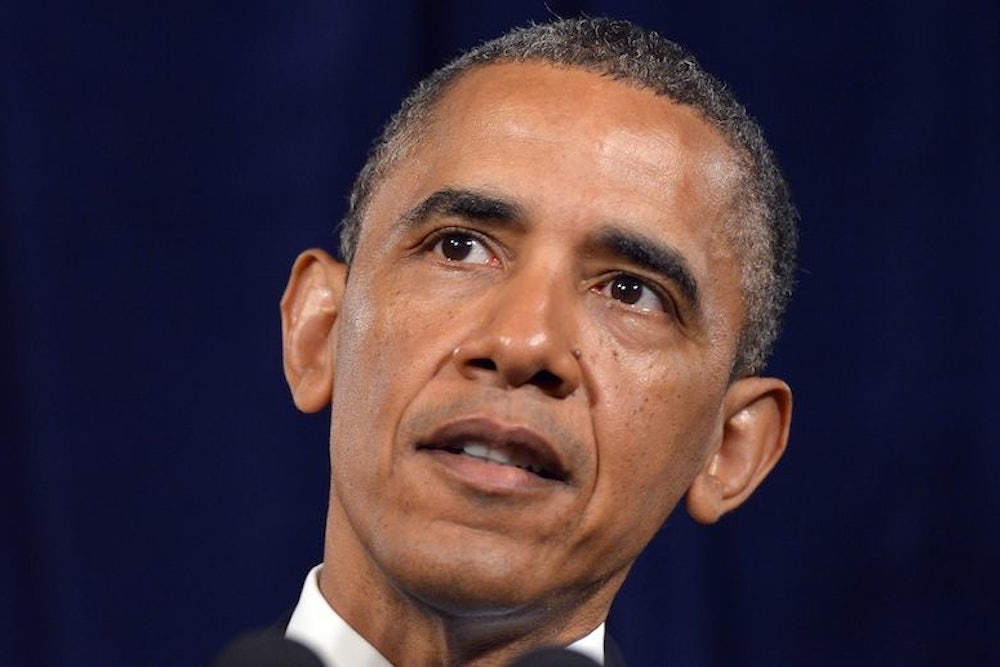Put me in the camp that finds the outcry over this week's revelations of NSA snooping a touch overwrought. The declamations are of course particularly rich coming from the right, given both the post-9/11 security state's roots in the Bush administration, and the readiness of many Republicans to blame President Barack Obama for any plots that have been allowed to slip through our defenses. Yes, several high-profile conservative standard bearers are defending the National Security Agency's surveillance, but other Republicans have not been able to resist scoring points off the moment. Some of the outcry on the left has been equally tedious, suffering from the sort of grandiose abstraction that one normally associates with late-night college-dorm bull sessions: “Dude, they might be watching us right now!...” Based on what we know so far of the NSA surveillance, I can’t help but incline toward the contextualization in today’s Wall Street Journal editorial: “The critics … say the NSA program is a violation of privacy, or illegal, or unconstitutional, or all of the above. But nobody’s civil liberties are violated by tech companies or banks that constantly run the same kinds of data analysis. We bow to no one in our desire to limit government power, but data-mining is less intrusive on individuals than routine airport security.”
All that said, I welcome the uproar. It is a sign that we are moving, belatedly, beyond a permanent-war mindset that for a while now has been neither justified by global reality nor healthy for the country. Over and over, even as the troop drawdowns began in Iraq and then Afghanistan, we were told we were a nation at war. It was a stance that justified rampant remote killing from the skies above Waziristan and Yemen and, at home, the sprawl of a huge and lucrative new security-industrial complex in which 850,000 Americans hold top-secret security clearances. Few dared call the latter what it was: a massive overcompensation for the utter failures that preceded the September 11, 2001, attacks. All we would have needed back then was for the FBI to take those flight-school warnings more seriously, or for the CIA to not hide from the FBI its knowledge of the crucial Malaysia meeting of those who were behind the USS Cole bombing and of the presence in San Diego of two of the eventual 9/11 hijackers. (FBI agent Ali Soufan’s discovery of that fateful withholding, hours after the towers collapsed, and his subsequent agonized wretching in a bathroom in Yemen, is for me the defining image of our pre-9/11 failure.) Yet rather than simply address the obvious flaws in our turf-obsessed apparatus, we went about building a leviathan far beyond even what we had deployed against the nuclear-equipped Soviet Union, all to fend off the next Mohamed Atta. We were like the boy bouncing up from a schoolyard blow: “9/11 didn’t count. Betcha can’t hit us again.”
You saw the mindset at work even after April’s Boston Marathon bombings. Yes, Bostonians showed their ballyhooed resilience, with their vows not to let the awful attack affect their urban routines. But it was hard not to detect the permanent-war footing in the overwhelming police response—the shutting down of a city and suburbs with a combined 1 million people for an entire day to hunt for a young man who had disappeared into the night with naught but the seat of his pants. Those of us who questioned the shutdown were shouted down: “But he’s a terrorist! Who knows what he was yet capable of?” As if the T-word alone endowed with superhuman powers what was, in fact, a badly out-armed—if armed at all—19-year-old on the run.
This is no way for people in the most powerful nation on earth to view the world around them, but the reaction to the NSA revelations suggests it is starting to shift. We now have people like Rep. James Sensenbrenner, the conservative Wisconsin Republican who introduced the Patriot Act in 2001, saying that the NSA’s phone-record seizures went beyond even what he had ever conceived of. Yes, chances are he would not be speaking out as strongly if these disclosures had occurred under a Republican president, but that’s politics. If reining in our security-state mindset and leviathan counterterrorism apparatus requires a Democratic president to be attacked not un-hypocritically from the left by Republicans, then so be it. It is Obama who declared last month:
“We must define the nature and scope of this struggle, or else it will define us. We have to be mindful of James Madison’s warning that no nation could preserve its freedom in the midst of continual warfare. Neither I nor any president can promise the total defeat of terror. We will never erase the evil that lies in the hearts of some human beings nor stamp out every danger to our open society. But what we can do, what we must do, is dismantle networks that pose a direct danger to us and make it less likely for new groups to gain a foothold, all the while maintaining the freedoms and ideals that we defend. And to define that strategy, we must make decisions based not on fear but on hard-earned wisdom. And that begins with understanding the current threat that we face.”
And it is Obama’s depiction this week as an Orwellian overlord that just might inspire this long-overdue rethinking. Obama is surely aware of that, and likely, though today he defends the surveillance, even welcomes it. Secretly, of course.
Alec MacGillis is a New Republic senior editor. Follow him on Twitter @AlecMacGillis.
